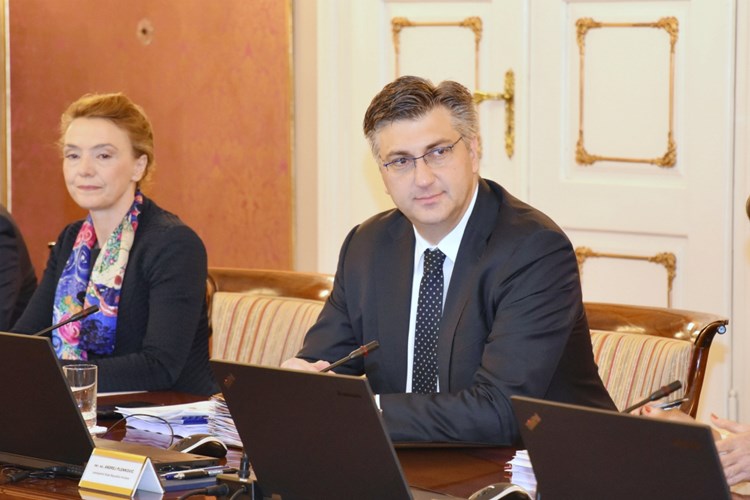


"These goals are based on the government's political platform and are in line with the recommendations in the European Commission report. We want this document to be the basis for numerous reforms to be launched in 2018 and the first half of 2019," he said.
Accomplishing those goals requires the implementation of 59 measures in 11 reform areas, the PM said.
The reform plan is the right framework and now is the time to launch structural reforms, Plenkovic said, noting that economic growth and other macroeconomic indicators were favourable and that no elections were expected this year.
"I also expect yet another tourist season with excellent results, which will certainly provide additional impetus for the economy," said Plenkovic.
The government is expected to adopt the National Reform Programme for 2018 and the Convergence Programme today, and the two documents are to be sent to the European Commission by the end of April.
The reform programme defines the state of affairs and plans regarding the implementation of the government's key structural policies, while the convergence programme defines the key characteristics of macroeconomic and fiscal policy frameworks.
These activities are part of the process of obligatory reporting and adjustment of EU member countries' fiscal policies to the jointly defined goals and regulations of the EU, and non-compliance with them results in sanctions, including the freezing of EU funds.
After representatives of some of Croatian minority communities recently boycotted the central state commemoration for the victims of the World War II Jasenovac concentration camp on April 22, Prime Minister Andrej Plenkovic on Thursday called on all social stakeholders in the country, notably politicians, to attend central state commemorations and make effort so "that in the future we could have a single commemoration at Jasenovac."
Addressing a government session, Plenkovic said that a state delegation this past Sunday paid tribute to all victims of Nazism and Fascism and that the government's position on the matter was very firm and clear.
"We reiterated that once again on Sunday, and we will continue doing so in the future," he said.
For the third year in a row this past Sunday representatives of the Coordinating Committee of Jewish Communities of Croatia, the Serb National Council and the Association of Anti-Fascist Fighters and Anti-Fascists of Croatia boycotted the central state commemoration for the victims of the Ustasha-run concentration camp and honoured the victims at their own, separate commemorations.
They said that their non-attendance at the commemoration was due to the downplaying of Ustasha crimes, for which they believe the state authorities share the responsibility.
Text: Hina